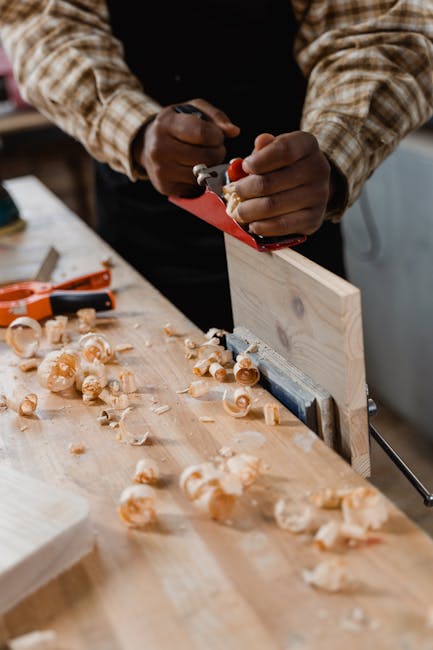There's something incredibly empowering about
slowly methodically learning to trust yourself, and I think one of the best ways to do that
is to learn a craft. It's not a failure to feel stressed, or overwhelmed, or really
frustrated, and feel like you want to throw your tools and stuff. You feel like a toddler kind
of. I mean there's a reason why toddlers feel that way! They're learning a lot and it's really, it's
frustrating to learn.
So, green woodworking is, um, when you're working with the wood when it's
still green, so it still has a high water content from the tree. You're interacting with this object
– and and the object being the wood – and in order to interact with it successfully, you have to
respect it. I'm constantly exploring whatever piece I'm working with.

That's why I like
green woodworking as opposed to conventional lumber. I have no interest in making the same
thing twice. And if you're making a spoon, and if you're truly paying attention to the
grain, you can't make the same thing twice. It's literally a dent in a piece
of wood. That's a spoon. It's both incredibly specific and really expansive
– across cultures across times – and, and in order to respect it, you have to
be listening to it and engaging in it. And therefore you're present in the moment. If I
feel like I'm working, it's that I'm not present in the moment. I'm thinking about how am I
going to make ends meet, how am I going to do this and that. And, and to pull it back to
this kind of infinite well of goodness that I pull out of green woodworking, I just have
to focus back on what my hands are doing. You get better at it, you get almost more curious,
um, about what other things you can do, and then you have this beautiful spoon! That you made!
I mean, how cool is that? Even if you've done, you know, even if you struggled to be in the
moment and have it feel like a joyful experience, you then have this gorgeous thing that you can
either use yourself, you can give to someone, you can serve a meal with that,
so it just carries that kind of levity.
Like, it's more compelling to
our bodies to interact with things made of wood that are following the grain,
which you can only do if it's green. It has been a huge resource for me in navigating
the different mental health struggles that I have, and one of the main ways is
that it makes you focus on, on the body, on your body, and it takes me out of
my mind. I have to be very attentive to where the, the edge of the knife or the edge of the axe
is, is meeting the wood. I have to make sure that my body is safe. There's a high repetition
of high intensity actions, like using the axe, that releases all this pent-up stuff I have
in me in a really beautifully productive way. If there's any kind of spark, follow
that spark. Expect it to be challenging, and desperately try not to compare your work
to other people's work, or your process, or your, your growth to someone else's.
Because it's going to be radically different. Whatever kind of craft that calls
to you, just do it every day.

